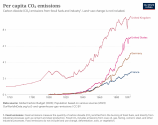We have NO SAY on the matter, granting us independence is a farce as we are so depended on the US for our reconstruction needs that we had to pawn our future to them. ( Mineral resource were given to American company as collateral to exploit)
Why didn't the US annex us as the 51st state? aside from being Brown why bother to reconstruct a former colony devastated by our war when we can control it for cheap and benefited hugely from it.
Bell Trade Act, an act passed by the U.S.
specifying the economic conditions governing the emergence of the Republic of the
from U.S. rule; the act included controversial provisions that tied the Philippine economy to that of the
.
When the Philippines became independent on July 4, 1946, its economy had been thoroughly devastated by
. Payment of war damage claims by the U.S. government and an influx of capital were both desperately needed. The Bell Act set quotas on Philippine exports to the U.S., pegged the Philippine peso to the U.S. dollar at a rate of 2:1, and provided for
between the two countries for 8 years, to be followed by gradual application of tariffs for the next 20 years. Many Filipinos objected to the so-called
, which required an
to the Philippine constitution allowing U.S. citizens
with Filipinos in the exploitation of natural resources and operation of public utilities; nonetheless, some powerful Filipinos involved in these negotiations stood to benefit from the arrangement.
A strong incentive for Philippine acquiescence was the fact that American payment of $800,000,000 in war damage claims was made
upon Filipino ratification of the Bell Act. The act remained extremely unpopular in the Philippines. It was later superseded by an agreement more favourable to Filipino interests, the Laurel-Langley Agreement, which took effect in 1956.

